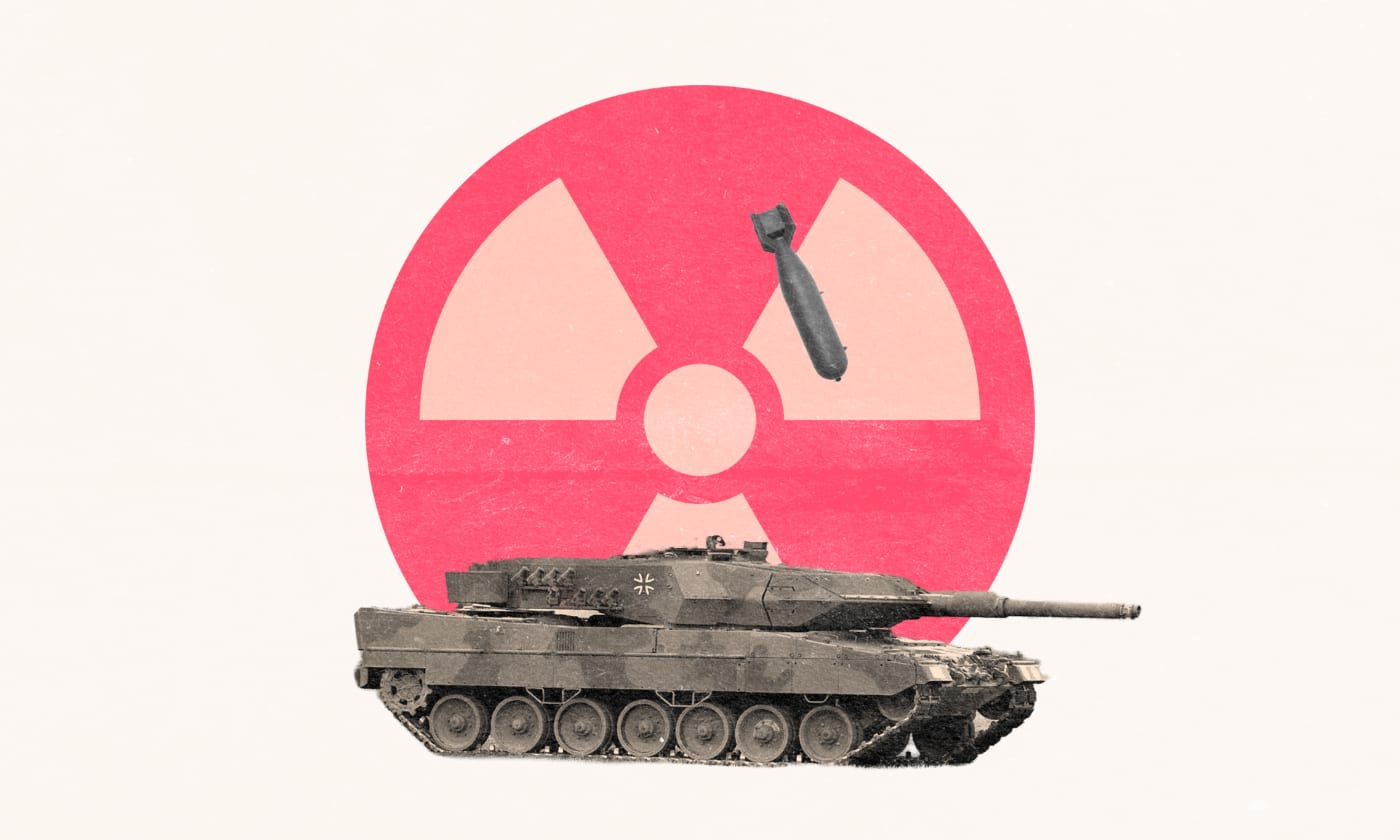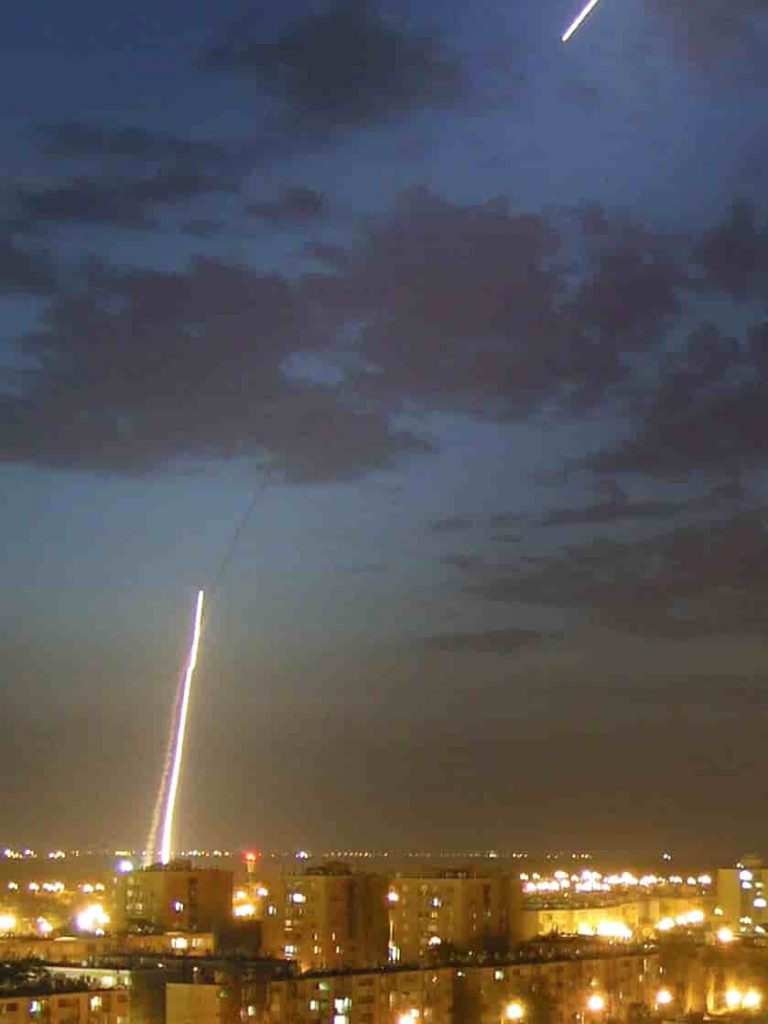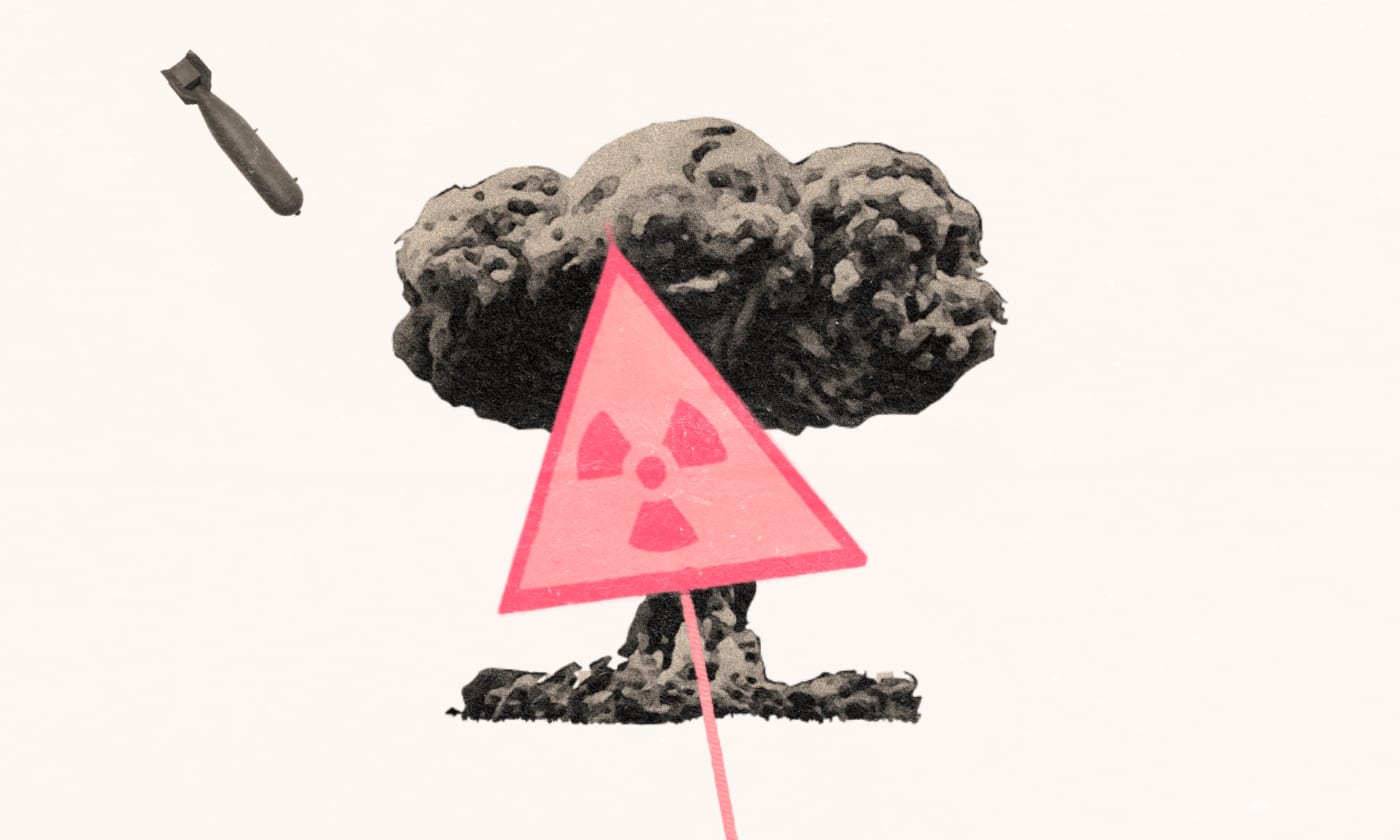Demilitarising the Manipulable Atom

When World War One broke out, one of the founding fathers of modern science fiction, H.G. Wells, popularised the “war to end all wars” antiwar euphemism while trenches were dug on the Western front as British, French and German militaries mobilised for war. That same euphemism is often adopted and overused by aggressive unilateralists bent on justifying wanton militarism in pursuit of lopsided geopolitical objectives.
What Wells juxtaposed as the seminal foundation for a future liberated from the scourge of war, the Serbian American inventor Nikola Tesla fashioned in the form of a “death ray” to deny the possibility of war by vaporising invading militaries with “national energy shields” powered by alternating current. If history has proved anything, it is that war is one of man’s seminal preoccupations. War colleges churning out young military officers would have us believe wars are justifiable if waged to restore order to a Westphalian international balance of power system to make world peace possible.
Is war inevitable?
When referencing history, each generation is faced with a simple question turned proposition: is war inevitable? Ironically, the simplest questions take entire lifetimes to answer assuming they can be answered by one generation alone. Any crash course with history suggests man builds better bombs than bridges. It is therefore no surprise to suggest why apocalyptic thinking is seemingly hardwired to our DNA, but as it turns out, no generation that has ever lived mastered its own time.
Where there is existential uncertainty, there is fear for survival, meaning man is dedicated to his mortal preservation. When roughly translated, this means war is viewed as a necessary method of “organised species preservation,” hence, a necessary evil. This realisation is illustrative of a reality of dualities and competing bipolarities where something inherently beneficial like information technology can be exploited for purposes of misinformation and disinformation under the supporting auspices of press freedoms.
That duality turned bipolarity can effectively undermine legitimacy attributable to social media. Therefore, any objective observer of history cannot resist wondering: when man evolved the ability to split atoms, was the weaponisation of atomic energy inevitable?
History is never repeated, it is simply unlearned and discarded
The 2022 Russo-Ukrainian War revisited a dark historical parallel with the rise of Nazi Europe before the outbreak of World War II, while renewing worst case scenario fears associated with mutually assured destruction. This teaches us that history is never repeated, it is simply unlearned and discarded. It should hitherto be all too obvious to us: the wrongs defined as the injustices of history cannot be solved by national platforms of existential happenstance. Could the solution to man’s existential crisis on war can be resolved by simply renewing and restoring the original aims and objectives the United Nations sought to achieve in the area of abolishing war when the original UN Charter was signed in 1945?
Is the United Nations up for the job?
When analysing the legitimacy of world federalism, the millenarian question of the day is: can the United Nations be saved from “permanent international irrelevance” by denying war to unilateral state actors enjoying permanent seats at the United Nations Security Council? The foundation for a Restored United Nations must be based on effective, albeit enforceable, deterrents to militarism with a focus on denying the possibility first, and feasibility second, of nuclear war.
Israel is a pariah state regularly accustomed to violating international law, but what if an “International Anti-Nuclear Missile Interception Force” applied Tel Aviv’s Iron Dome System, but on a planetary basis? It would have permanent bases in different parts of the world to deny nuclear war by intercepting a nuclear missile in outer space or in the worst-case scenario the upper atmosphere before reaching targets. This concept weds the late Ronald Reagan’s Strategic Defence Initiative with Israel’s Iron Dome System effectively making defence and ideally denial of nuclear war part and parcel of our shared human heritage.

Iron Dome is a mobile air defence system that was developed to intercept and obliterate short-range rockets and artillery shells that are fired from ranges of 4 to 70 KM distant. © CC 3.0
After all, preventing mutually assured destruction is beyond the purview of a single nation or for that matter any rogue unilateral state actor. This brings to mind an updated BBC article published on May 17th 2021 on the working mechanics of Israel’s Iron Dome: once missiles are detected by radar, an anti-missile is launched to intercept and destroy the incoming missile in midair before reaching its target.
Unfortunately, the same article reported the Iron Dome of having a 90% success rate which for conventional missiles is impressive, but in terms of denying nuclear war can prove disastrous even by fractional margins of success. It would be the task of a “Reformed United Nations International Anti-Nuclear Missile Interception Force” to eliminate that 10% margin to zero; the significance of which could symbolise man’s formative triumph against nuclear war. Ironically the composition of such a force would be military in nature, but would be man’s first “international self-defence force” save for the token and often ineffectual efforts made by United Nations peacekeeping missions.
A world supranational union could help
Man can achieve his greatest victory against war since time immemorial
In the long run, it may prove impossible to end war or build massive energy shields to fight future conflicts, but if we can concertedly deny and ultimately eliminate nuclear war, man will have achieved his greatest victory against war since time immemorial. For that same reason, any proposition made to deny the possibility of war must attack the actual feasibility to wage armed conflict where, how, and when it happens. This may prove achievable when big picture holisms coalesce with methods delivering practical application when targeting the eradication of nuclear arsenals first and regional geopolitical crises second. Ever since the first meeting of the Union of European Federalists occurred in September of 1946, activists and organisers alike purporting world federalism have been predictably taken to task on the hows, whys, and whens of supranational union by naysayers.
The reality is little has been offered by world federalists beyond conceptualised propositions to primarily niche audiences. This has effectively failed to achieve significant traction to masses sympathetic to nationalist loyalties when running up against the harsh realities of state sponsored unilateralism. Even Albert Einstein realised Nazism could not be defeated by Gandhian pacifism, but world supranational union can be sold as our best alternative to end nuclear war by denying the possibility for it first while dismantling nuclear missiles second to fully demilitarise the power of the manipulable atom.



